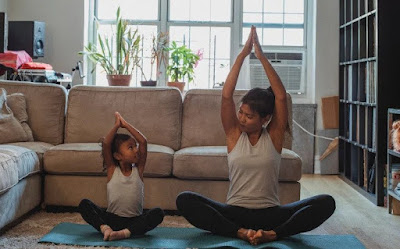Anxiety In Children: Definition, Signs, And Reason
All children feel anxious if they walk into any school during exam time, but some students may be so anxious that they fail to arrive at school that day.
But when the constant thought of fear and irritation roam around the child’s health, it becomes a matter of concern. This harms the children's mental and emotional health, which can also damage their self-esteem and confidence. Many professionals are working on anxiety treatment for children in New York to heal them before it prints in their heads as trauma. Below write-up contains many points to provide enough information about children's anxiety.
What is anxiety in children?
Children and young people occasionally experience worry and anxiety as adults do. Different things can cause children anxiety at different ages. There is a high prevalence of separation anxiety in young children between the ages of six months and three years. When they are away from their parents or carers, they could become clinging and cry.
Additionally, typical for preschoolers is the emergence of specific phobias or fears. Fear of animals, insects, storms, and the dark are common childhood phobias.
Signs of Anxiety in Children
The young children may not express how they feel, but the anxiety in them takes a turn as many signs and symptoms, which will make you certain about their condition. Some of them are -
Feeling irritation and being clingy
Having tearful eyes every time
Difficulty in having a good sleep
Having nightmares often
Wetting the bed and inactive every time etc.
Why exactly is this happening?
More kids than others are prone to experience anxiety and worry. Children frequently struggle with change and may experience anxiety after moving into a new home or starting a new school. After an unpleasant or traumatic event, such as a car accident or home fire, children may develop anxiety. Children may experience anxiety and insecurity as a result of family disputes and conflicts. Teenagers are more likely than other age groups to have social anxiety, which causes them to avoid social situations or find reasons to leave them.
If you want to help your child with this, you can go for professionals who provide anxiety treatment for children in New York. But the key point here is sometimes, when a parent or anyone near the child starts understanding his condition and, instead of getting angry, teaches them some positive ways to proceed with their thought process, the child simply starts getting over those thoughts.


.jpg)
Comments
Post a Comment